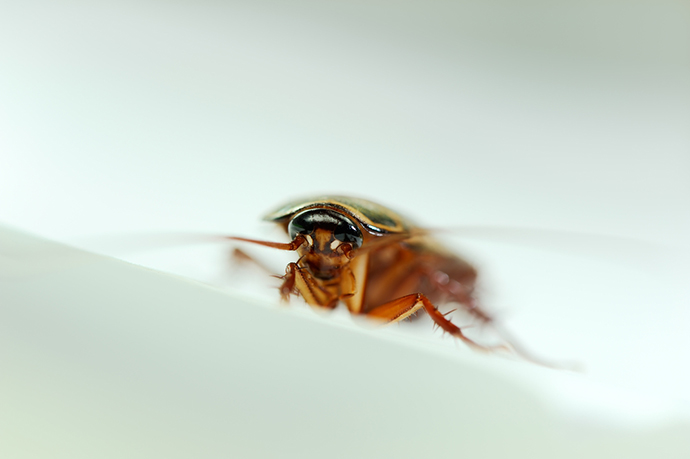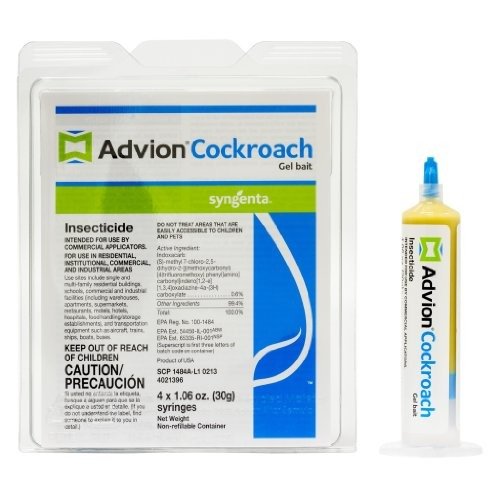What Do Cockroach Bites Look Like?
I never see cockroaches in my house, but I have noticed them in our garden shed. After showing them to my son, he asked, “Can cockroaches bite?” Not knowing the answer, I investigated and uncovered some horrible and intriguing answers.
Before answering my son’s question, here are some additional questions to consider. Do you know what a cockroach is? Do you know how strong they bite? Why worry about insect bites? How do you solve bug issues?
Just What Is a Cockroach?

Cockroaches are an average-sized insect that become active at night and either crawl or fly about, especially when light is instantly turned on in their presence. They come in several sizes, but the primary insects encountered in homes is the German cockroach.
The German cockroach has a life cycle involving an egg, a nymph, and finally an adult. These University of Florida photographs show all three German cockroach life cycle stages. In the adult form, this insect is 10 millimeters (one-third inch) to 15 millimeters (half inch) long.
This bug lives throughout the world, except in locations that encounter subzero temperatures. The German cockroach can’t live without being near humans, where it finds warm living quarters complete with food and water for survival.
Like humans, cockroaches are omnivores, in that they eat foods that are derived from both animal and vegetable matter. Given the right conditions and left unchecked, insect populations explode exponentially, leading to food shortages and possible cockroach bites.
A Cockroach Exerts a Bite 50 Times the Power of Its Weight
These insects pack a punch with their bite. Smithsonian Magazine reports that European scientists registered the power of the American cockroach bite as being 50 times greater than the weight of the insect, or equivalent to about five times the power of a human bite.
These scientists found that the cockroach’s mouth parts, or mandibles, exhibit both deliberate crushing and quick carving capabilities. Muscles “power up” for a maximum biting force when it wants to gnaw through tough materials, such as leather or wood.
Why Worry About These Chewing Insects?
Even though some people cannot stand any bug, there are some people, like myself, who enjoy insects and tolerate living with them. You might ask, “Why worry about cockroaches?” The answer to your question lies in health issues related to insects.
Cockroaches excrete chemical defense secretions and feces on food that they eat. They are also a haven for pathological organisms, which left unchecked, cause allergic reactions and even disease to humans in close contact with them.
Cockroach infestations also place a psychological strain on people, since a stigma of filth is associated with a large number of insects in a home. Those living with cockroaches entertain less and avoid nightly visits to their kitchen, fearing encounters with the insect.
Yes, Roaches Bite Humans!
Cockroaches are usually not aggressive enough to bite a human, but this inhibition dwindles during food shortages and when humans do not move regularly. This YouTube video shows evidence of bug bites inflicted on immobile patients sent to an Atlanta hospital.
Dr. Joseph Kunkel, a retired professor of biology at the University of Massachusetts Amherst, writes on his website that some cockroaches are large enough to bite through human skin, especially the thin and tender skin found with children.
Common human body parts bitten by insects include eyelashes, eyelids, fingernails, fingers, hands, and feet. Large bug populations in homes with limited food mean that cockroaches feed on food remains left on the faces of sleeping human, resulting in bites.
The best solution to biting insects is active prevention. Always clean up after every meal, keep all food in sealed containers, and never eat while sitting on a couch, or while lying down in a bed. Keeping a home clean is a good defense against these bugs and you may never have to worry about how those insects' trap work or where to get one.
Make life for insects uncomfortable by caulking cracks and crevices in your house, eliminating mulch at your home’s foundation, eliminating shrubs and plants close to the home, and picking up clothing, bags, and newspapers around the house.
To kill a large bug population, turn to a quality chemical insecticide, such as the product made by DuPont™, known as Advion® Cockroach Gel Bait. Expect to apply this gel bait daily for more than a week in order to kill a large roach infestation.
THE BOTTOM LINE
There’s no doubt that the answer is “yes” to the question, “Can cockroaches bite?”. So, how do you deal with these insects?
You can find the best cockroach killers on this page to explore the option of just getting rid of these insects from your home.
To eliminate the possibility of biting cockroaches:
- keep a ship-shape house;
- caulk cracks and crevices, eliminating a gateway for cockroaches to enter your home;
- hit any cockroach invasion with a quality insecticide, such as the Advion® Cockroach Gel Bait.
Attack cockroaches quickly as discussed on this blog article and you won’t experience biting from these insects. If you have questions, please feel free to leave a comment about your experiences, or visit the Attic Pest Authority Homepage for more advice.

